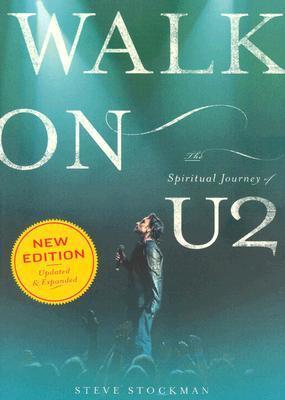What do you think?
Rate this book


250 pages, Paperback
First published January 1, 2001
I've been reading a lot about U2 lately, in preparation to write my own chapter about an aspect of the band. What I'm finding is that it doesn't take too much reading before you start reading in circles--the same stories, the same bits of interviews, the same song lyrics being explained in basically the same way. Certainly there is something to say about U2--and I hope what I'm planning to write will be a useful, new contribution--but it doesn't seem that there's a lot to write about U2. Once you kind of understand them--and reading U2 by U2 is the best way to acquire this understanding--there's not much left to say.
Unfortunately, Walk On doesn't add a lot of new content to the conversation. Part of the book's problem is that it was written "way back" in 2001, and so its analysis of U2's career ends with the Elevation tour. Several more recent books take the same themes another decade forward. These are the difficulties of writing about popular music.
But the other disappointment with Walk On is author Steve Stockman's over-the-top praise of the band. Too many points in the book are "the greatest," "the best ever," and so forth. It's a little comical when The Joshua Tree is hailed as "U2's finest moment" (71), then Achtung Baby "may be the band's best work" (98), but Zooropa "deserves serious consideration" (129), and then All That You Can't Leave Behind includes "just the most gorgeous melodies, dashes of great playing and Bono's voice giving its best performance ever" (164). You get the idea. The tone is difficult for me to take seriously--and I'm a U2 fan!
Stockman's tone also bothered me when he criticized Christianity or the Church in general. It's as though it's not enough to praise U2's greatness, but he also has to pull down everything else that's not U2. Referring to Christian music as "the ghetto" lacks any nuance. And averring that "the problem with Christians is the Church has for many years taught people what to think and not how to think" (124) is a rather unhelpfully dismissive way of looking at the history of Christianity.
However, I found Stockman's suggestions about U2's reasons for backing away from the institutional Church (pp. 67-70) really convincing and thoughtful. So there was some good in amongst the more irksome passages.
Instead of Walk On, I would recommend We Get to Carry Each Other: The Gospel According to U2, by Greg Garrett. It's more recent, has a fairer tone, and covers much of the same ground.
I was truly blown away by this book. I've been a casual U2 fan for years but never really knew much about them. I find myself fascinated and challenged about my faith and how changing the world is more than just idealistic. It's possible. And in fact, it's already happening. U2 is far more than a mere rock band. They are a group of men who struggle to make sense of this world and their lives and bring us along for the ride. Their discoveries/insights on not only "big" issues like terrorism, war, consumerism, poverty and fair trade but also personal issues of longing, lament, joy, love, hate, hope, and faith challenge us all to re-evaluate our priorities and take action.